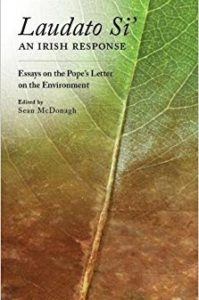It is ironic and contradictory that the feast of Christmas in which we celebrate the birth of Christ, has become the biggest shopping event right around the world.
St. Luke tells us that in response to Caesar Augustus’ decree for a census of the whole world to be taken, Joseph and his pregnant wife Mary set out for his city Bethlehem in order to be registered. “While they were there the time came for her for have her child, and she gave birth to her first-born. She wrapped him in swaddling clothes, and laid him in a manger because there was no room for them inn. (Lk. 2..5 -7).
Jesus was welcomed into the world not by the high and mighty of this world such as King Herod or the Roman governor. St. Luke tells us that shepherds, who had no standing in Jewish society, were the first ones to celebrate his birth. “In the countryside close by there were shepherds who lived in the fields and took it in turn to watch their flocks during the night. The angel of the Lord appeared to them and the glory of the Lord shone round them.
They were terrified, but the angel said, ‘Do not be afraid. Listen I bring you news of great joy, a joy to be shared by the whole world. Today in the town of David a saviour has been born to you. He is Christ the Lord. And here is a sign for you, you will find a baby wrapped in swaddling clothes and lying in a manger. And suddenly with the angel there was a great throng of heavenly hosts, praising God and singing: Glory to God in the highest heaven and peace to people who enjoy his favour.” (Lk 2: 8 -14).
Giving that the message of the Gospel challenges us to care for other humans and also our world, Christmas does not have to be a burden on the environment. This theology is spelled out for us very concretely by Pope Francis in his encyclical Laudato Si’: On Care for Our Common Home. In that section which he calls the ‘Gaze of Jesus’. Jesus invites his disciples to “recognise the paternal relationship that God has with all his creatures.
He said, “are not five sparrows sold for two pennies? And not one of them is forgotten by God”. (Lk12: 6). Look at the birds of the air; they neither sow not reap not gather into barns and yet your heavenly Father feeds them.” (Matt 6: 26).
With a little effort and imagination, we can reduce the environmental impact of the Christmas season. Here are some ideas to help celebrate the season while caring for the earth. There is too much violence in the world, and the new wave of video games for children is disturbing. Remember the theme of Christmas is “Peace on Earth”. There are many toys and games that brings the child’s’ creativity into play.
Many Christmas gifts in today’s marketplace come from countries like China which is halfway around the world. Transporting them contributes significantly to greenhouse gas emissions and global warming. Local craft fairs and artisan shops are a good source for gifts that come without the added costs of transportation. And gifts made locally often have a story which goes with the gift, since the artisan and the origin of the gift are known. By doing this we support local artisans.
Many individuals and small businesses have developed great products using recycled materials. Supporting these businesses helps reduce the stream of waste stream while promoting the concept of making best use of available local materials. Here are some example for you to consider: The US Environmental Protection Agency (EPA,) says about 40% of all battery sales occur during the Christmas holiday season.
 Discarded batteries are an environmental hazard. Even rechargeable batteries find their way into the waste stream eventually. By buying a renewal energy science kit, children can learn how natural power can be harnessed and applied in different ways.
Discarded batteries are an environmental hazard. Even rechargeable batteries find their way into the waste stream eventually. By buying a renewal energy science kit, children can learn how natural power can be harnessed and applied in different ways.
It would stimulate the child’s imagination and is also a great game in which parents and children can develop a lasting bond. The booklet gives clear instructions on how to build an actual wind turbine.
At Concern Worldwide, one can buy various animal gifts which will help a poor family in need in another part of the world. At the lower range €10 will provide a piglet for a family. Five rabbits costs €20, while a goat which will provide milk for a family costs €40. The price of one cow at €50 which will provide milk for a family and, possibly allow them to sell the milk which is left over. By giving this kind of gift, one is responding to the real meaning of Christmas which is helping people who are in need in very practical ways.
You can also subscribe to the Far East magazine and which in 2018 celebrates 100 years of continuous publication since January 1918. Through the Far East, you can learn about the projects Columbans are involved in to help the most disadvantaged in the countries where we serve.
I wish you all a very Happy Christmas and every blessing in 2018.
Fr Seán McDonagh, SSC is an expert on climate change and ecology. His most recent book is ‘Laudato Si: An Irish Response’, Veritas, 2017.

